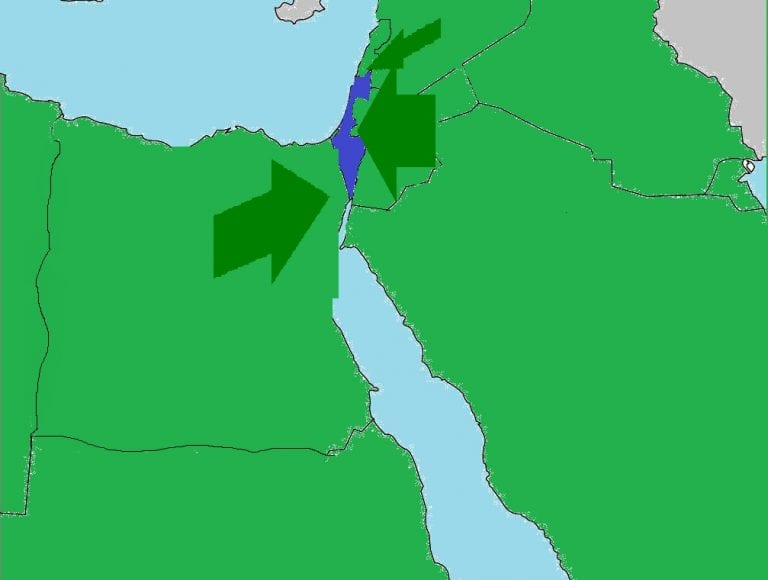“Israel’s patience with its enemies bordered on the foolhardy.”
For example, an opinion piece in the Irish Examiner makes the preposterous claim – based on an allegation on Al-Jazeera – that Israel went to war in 1967 to gain access to water resources. The Irish Times has made the equally ridiculous claim that it was “Israel’s devastating air strikes on Egypt, Jordan, and Syria [that] launched the Six Day War”. At least the BBC conceded that a similar claim made by one of its reporters that it was Israel that had launched strikes on Jordan and Syria was “not duly accurate”.




by Ciarán Ó Raghallaigh
Sources
1. Page 418 – Ground Warfare: An International Encyclopedia, Volume 1 – Stanley Sandler (ABC-CLIO, 2002)
2. Page 145 – The Right of Hot Pursuit in International Law – Nicholas M Polantzas (Kluwer Law International, Den Haag, 2002)
3. Page 79 – Israel’s Rights as a Nation-State in International Diplomacy – edited by Alan Baker (JCPOA, 2011)
4. Page 527 – The Middle East and North Africa 2004 – Taylor & Francis Group (Psychology Press, 2003)
5. Page 10 – The Albatross of Decisive Victory: War and Policy Between Egypt and Israel in the 1967 and 1973 Arab-Israeli Wars – George W Gawrych (Greenwood Publishing Group, 2000)
6. Page 47 – Arab-Israeli Conflict: The Essential Reference Guide, edited by Priscilla Roberts (ABC-CLIO, 2014)
7. Page 41 – Britain, the Six-Day War and Its Aftermath – Frank Brenchley (Bloomsbury Academic Press, 2005)
8. Page 103 – Regional and Ethnic Conflicts: Perspectives from the Front Lines – Judy Carter, George Irani, Vamik D Volkan (Routledge, 2015)
9. Pages 44-46 – The 1967 Arab-Israeli War: Origins and Consequences edited by William Roger Louis, Avi Shlaim (Cambridge University Press, 2012)
10. Page 168 – The Wizards of Langley: Inside the CIA’s Directorate of Science and Technology – Jeffrey T. Richelson (Westview Press, 2002)
11. Page 293 – The Israeli Military and the Origins of the 1967 War: Government, Armed Forces and Defence Policy 1963–67 – Ami Gluska (Routledge, 2007)
12. Page 457, A History of the World from the 20th to the 21st Century – John Ashley Soames-Grenville (Psychology Press, 2005)




